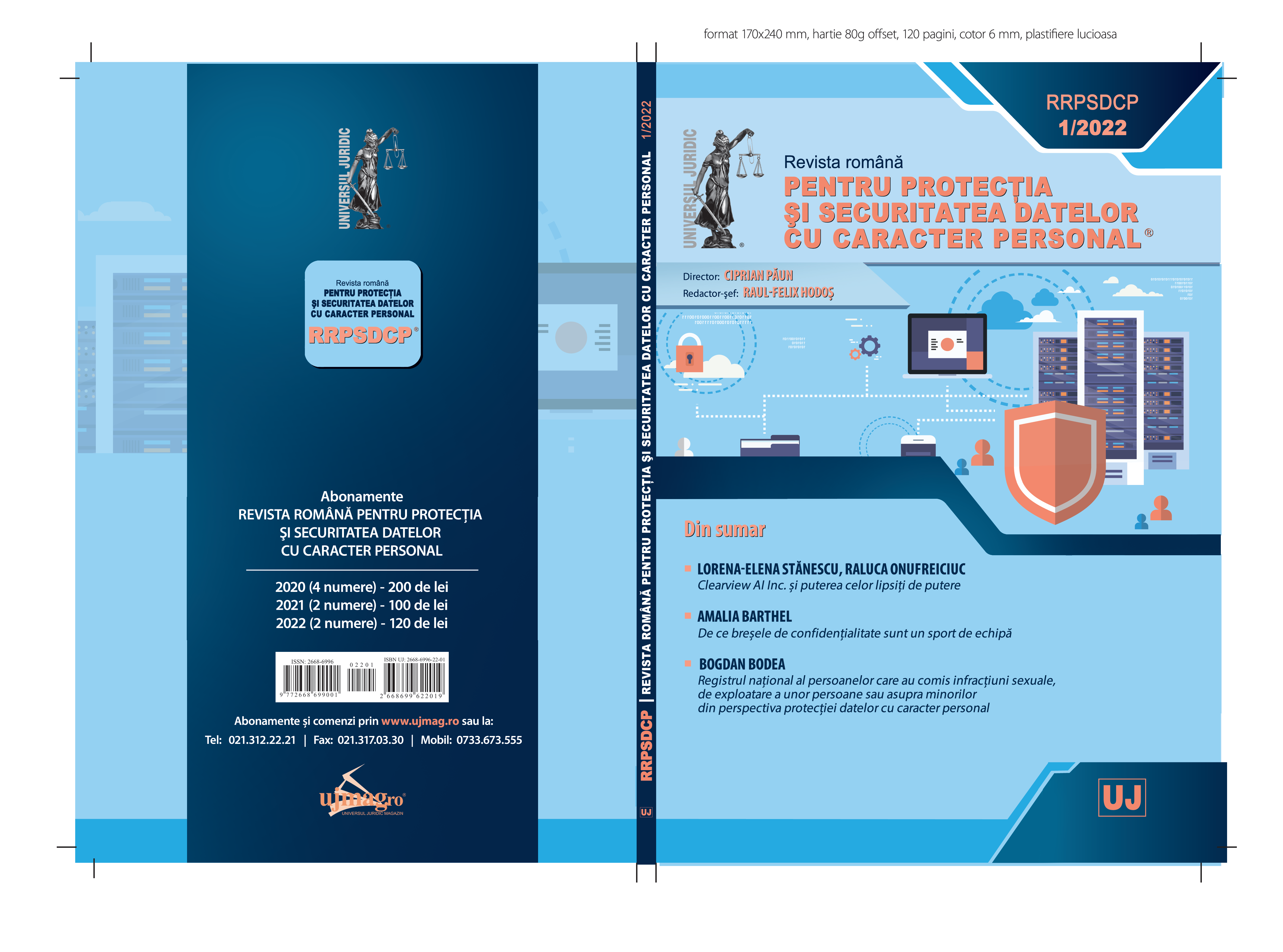Implementarea GDPR – o formă fără fond?
GDPR implementation – A form without a background?
Author(s): Bogdan PanaitSubject(s): Education, Law, Constitution, Jurisprudence, Civil Law, EU-Legislation
Published by: Universul Juridic
Keywords: GDPR (General Data Protection Regulation); Data Protection; DPO (Data Protection Officer); Controller; Implementation; Responsibility; Education; GDPR Kit;
Summary/Abstract: The importance of the proper implementation of the General Data Protection Regulation, Regulation (EU) 2016/679 on the protection of individuals with regard to the processing of personal data and on the free movement of such data and repealing Directive 95/46/EC, known as under the acronym GDPR (in some situations known as RGPD in Romania), it has often been challenged by public opinion and data operators, whether we are talking about public institutions or private operators. The worst thing is that even the press, without relevant documentation, took over and distributed these positions, to the very persons who are targeted by this, this being the objective and purpose of the Regulation (protection of human rights, in general). The reasons are diverse, but they have as a common denominator a deficient, or even erroneous, perception, first of all, on how to relate to the Regulation and to implement it at the same time. The ignorance is due to a low interest in public policies and imperative measures established on the channel of Romania's membership (accession) to the European Union space, first of all. At the same time, GDPR makes changes at the level of any organization, as they must ensure that personal data are processed in accordance with the new requirements and the effort and resources required for its implementation are not welcomed by employees and/or investors. It is well known that such changes can lead to systems capable of redesigning procedures, the renegotiation of contracts with third-party data processors and the restructuring of cross-border data transfer agreements, so that they are a sufficient basis in most cases for a formal approach. The list of inconveniences is long, and as we look at more cases, including incidents which have been the subject of European Authority investigations (we mean the generic, unitary body composed of the National Authorities of the Member States), we will go deeper into trying to answer the question. and we will have a very firm answer.
Journal: Revista română pentru protecţia şi securitatea datelor cu caracter personal
- Issue Year: 2022
- Issue No: 01
- Page Range: 35-40
- Page Count: 6
- Language: Romanian
- Content File-PDF

